Advertisement

- Updated on May 15, 2025
- IST 5:00 am
Cricket isn’t just a sport in India—it’s a lifeline, a heartbeat, a shared dream. And in the middle of this dream stands Sachin Tendulkar, a man who turned willow into magic and stadiums into temples. But there’s one innings that shines brighter than most, not just for its runs, but for its heart. In May 1999, hours after his father’s funeral, Tendulkar stepped onto the field in the Cricket World Cup and played an innings that turned grief into glory. This wasn’t the famed Desert Storm of 1998—those sand-swept heroics in Sharjah—but a different kind of storm, one brewed in the soul. Against Kenya, he scored an unbeaten 140, lifting India from despair and etching a tale of resilience into cricket’s history.
For every Indian aged 15 to 45, Tendulkar isn’t just a cricketer—he’s a memory, a hero, a lesson. Let’s dive into this historic moment, unpack its emotional weight, and see why it still echoes in our hearts today.
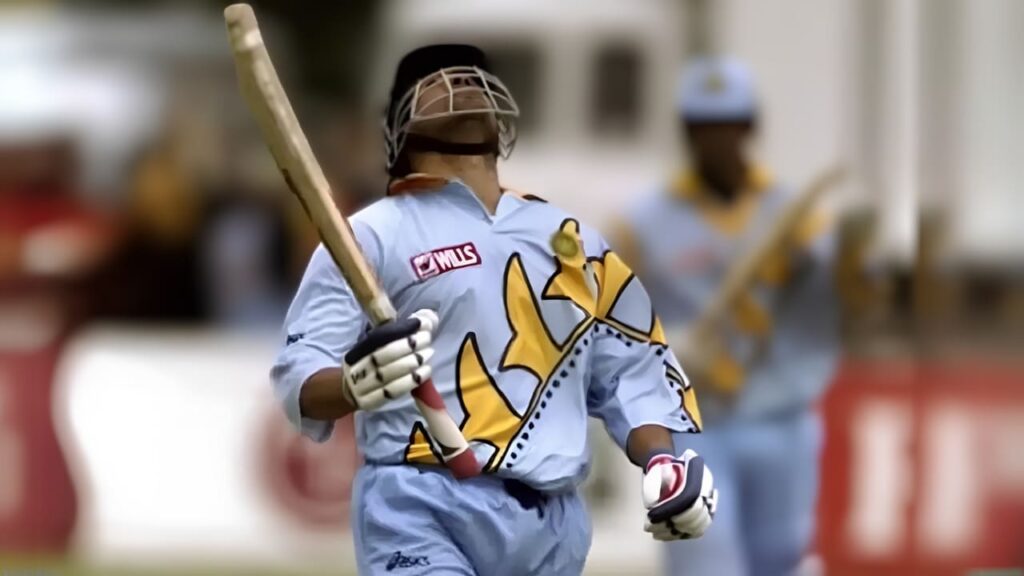
A Storm Before the Storm: The 1998 Desert Storm Legacy
Before we get to 1999, let’s rewind a year. April 1998, Sharjah. A literal desert storm swirled around the stadium, but it was Tendulkar who unleashed the real tempest. Scoring 143 and 134 against a fearsome Australian side in the Coca-Cola Cup, he single-handedly dragged India to glory. Those innings—coined the “Desert Storm”—became legendary, not just for the runs but for the sheer audacity. He was 24, fearless, and already the backbone of a billion hopes.
Why mention this now? Because it sets the stage. The Desert Storm showed Tendulkar’s brilliance under pressure, a trait that would shine even brighter in 1999. While the user query ties “Desert Storm” to 1999, it’s likely a mix-up—1999 had no Sharjah match. Instead, we’ll use “Desert Storm” as a metaphor for the emotional whirlwind Tendulkar faced in England. The real story begins with a phone call that changed everything.
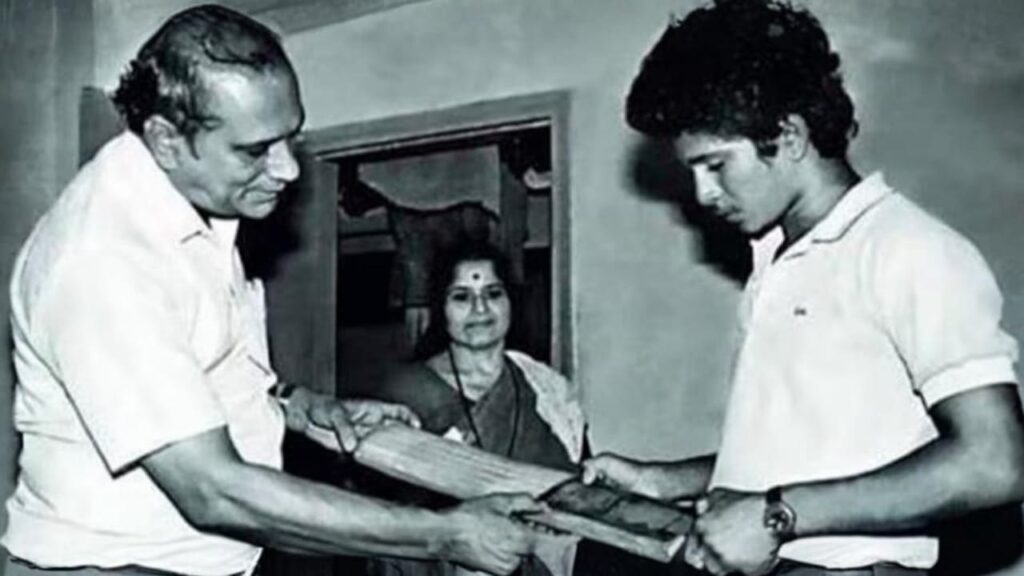
The Day the World Stopped: Ramesh Tendulkar’s Passing
May 19, 1999. India was in the thick of the World Cup in England, but for Tendulkar, the game faded into the background. His father, Ramesh Tendulkar, a quiet professor and his biggest cheerleader, passed away in Mumbai. The news hit like a thunderbolt. Tendulkar, then 26, left the team mid-tournament, flying back to India to bid farewell. Imagine the weight—1.2 billion people watching your every move, and yet, all you want is one more chat with your dad.
Ramesh wasn’t just a father; he was Tendulkar’s anchor. Away from the spotlight, he’d shaped a boy who’d rather play than pose. “My father always told me to enjoy the game,” Tendulkar once said. That day, as he stood by his father’s pyre, cricket must have felt a world away. India played Zimbabwe without him and lost. The team—and the nation—felt the void.
But then, something extraordinary happened. Tendulkar didn’t stay away. Urged by his mother, Rajni, to “play for the nation,” he boarded a flight back to England. Just four days after the funeral, he was back in his whites, ready to face Kenya. Grief doesn’t pause for anyone—not even the God of Cricket. What followed was pure magic.
The Innings That Healed a Nation: India vs. Kenya, 1999
May 23, 1999. Bristol, England. India needed a win to steady their World Cup campaign after the Zimbabwe stumble. The opposition? Kenya, a minnow in cricketing terms. But this wasn’t about the opponent—it was about the man walking out to bat. Tendulkar, eyes heavy but spirit unbroken, took guard. The crowd held its breath. Could he do it?
He could. And he did. Tendulkar unleashed an unbeaten 140 off 101 balls—16 fours, 3 sixes—a masterclass in control and aggression. Every cover drive was a tribute, every lofted shot a prayer. He put on 95 with Rahul Dravid, then dominated with Sadagoppan Ramesh, steering India to 329/2. Kenya crumbled at 235, and India won by 94 runs. But the scorecard doesn’t tell the real story.
Watch the replays, and you’ll see it: a man playing beyond himself. After reaching his century, Tendulkar looked skyward, a silent dedication to his father. “I wanted to make him proud,” he later said. For a nation reeling from his loss, that innings was a balm—a reminder that even in our darkest hours, we can rise. At 15, you’d cheer the shots; at 45, you’d feel the tears.
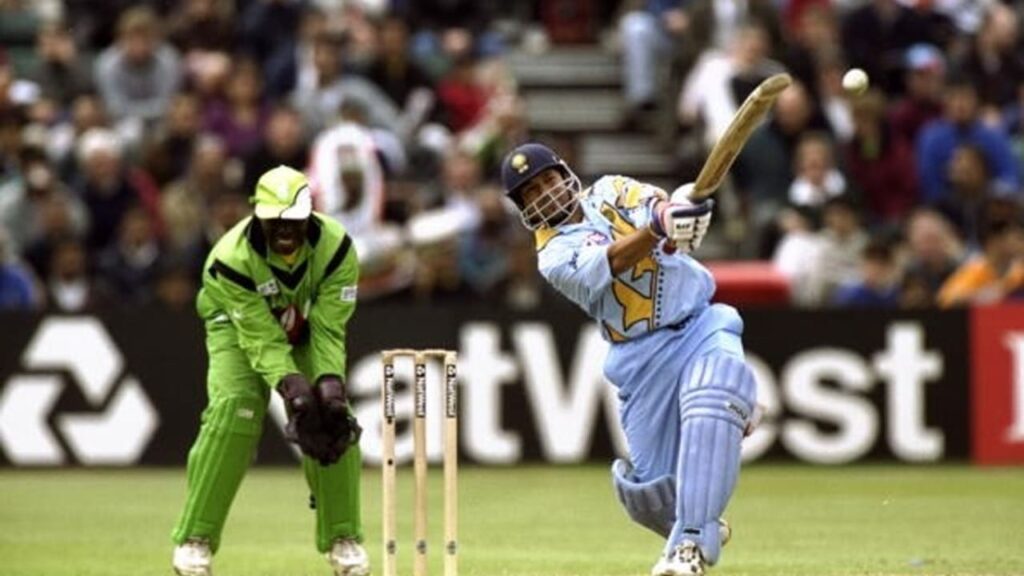
Turning Grief Into Glory: What It Meant Then and Now
That 140* wasn’t Tendulkar’s highest score, nor his flashiest. He’d smashed 186* against New Zealand later that year, and the Desert Storm 143 had more drama. But this innings? It was different. It was human. Cricket fans often deify Tendulkar, but here was a son, not a god, pouring his heart into every run. It showed us that heroes hurt too—and that’s what makes them real.
For India, it was a turning point. The win kept their World Cup hopes alive (though they’d bow out in the Super Sixes). For Tendulkar, it was closure—a way to honor his father through the game they loved. Years later, in 2025, we still talk about it. Why? Because it’s not just cricket—it’s life. Whether you’re 15, facing exams, or 45, juggling work and family, Tendulkar’s grit whispers: keep going.
And let’s not forget the echoes of 1998. The Desert Storm innings proved he could conquer bowlers; 1999 showed he could conquer pain. Together, they paint a picture of a man who didn’t just play cricket—he lived it.
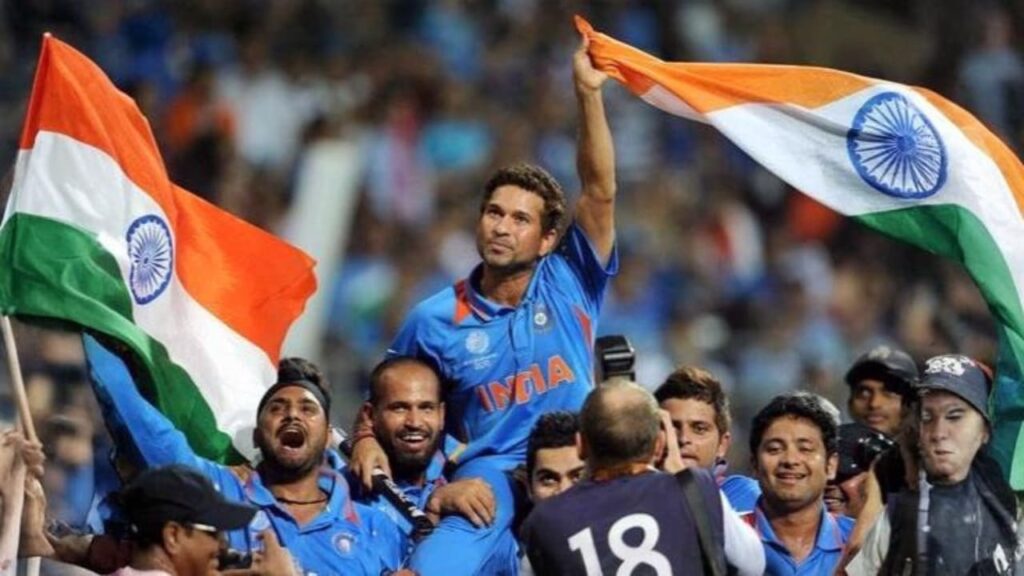
A Legacy Beyond the Boundary
Tendulkar retired in 2013 with 100 international centuries, a World Cup trophy, and a Bharat Ratna. But ask any fan their favorite memory, and 1999 often tops the list—not for stats, but for soul. It’s the story we tell our kids: when life hits hard, bat it out of the park. In a country where cricket is religion, Tendulkar gave us a sermon in resilience.
Today, young cricketers idolize his technique, but it’s his character they chase. Virat Kohli’s aggression, Rohit Sharma’s elegance—they all trace back to Sachin. And for us fans? We grew up with him. If you’re 15, you’ve seen the replays; if you’re 45, you lived the moment. Either way, it’s personal.
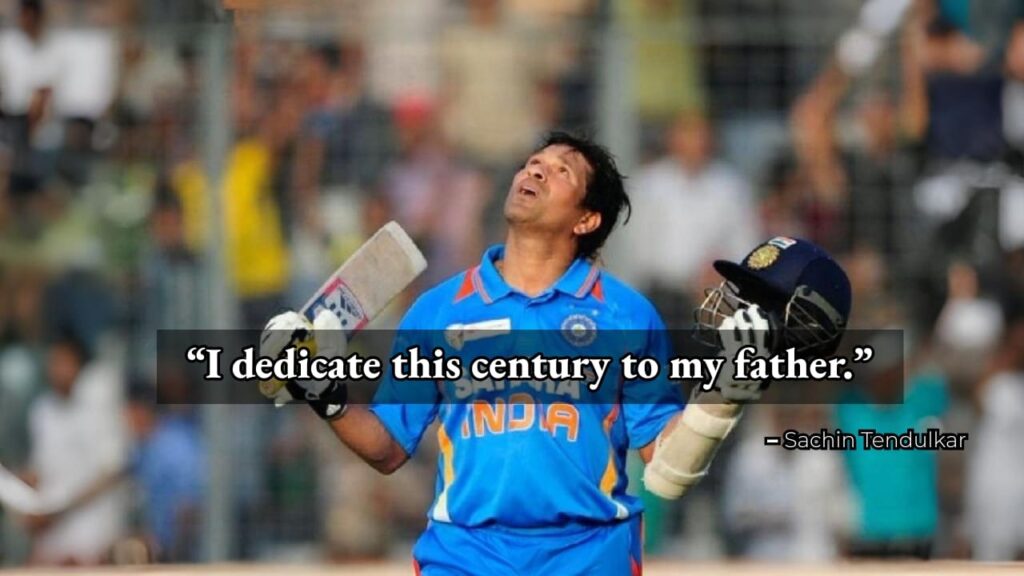
The Final Word: Why This Innings Still Hits Us
So, was it the “1999 Desert Storm”? Not in Sharjah’s sandy sense—there was no match there that year. But if “Desert Storm” means a battle against the odds, then yes, this was it—a storm of emotion, fought and won on English soil. Tendulkar didn’t just save India that day; he saved us from doubting what’s possible.
What’s your Sachin memory? That 140* against Kenya? The Desert Storm blitz? Drop it in the comments—I’d love to hear. And if this story stirred you, share it with a friend. Let’s keep celebrating the man who turned grief into glory, one run at a time.
You May Like This
Advertisement

You May Like This








Advertisement

Advertisement

Advertisement





